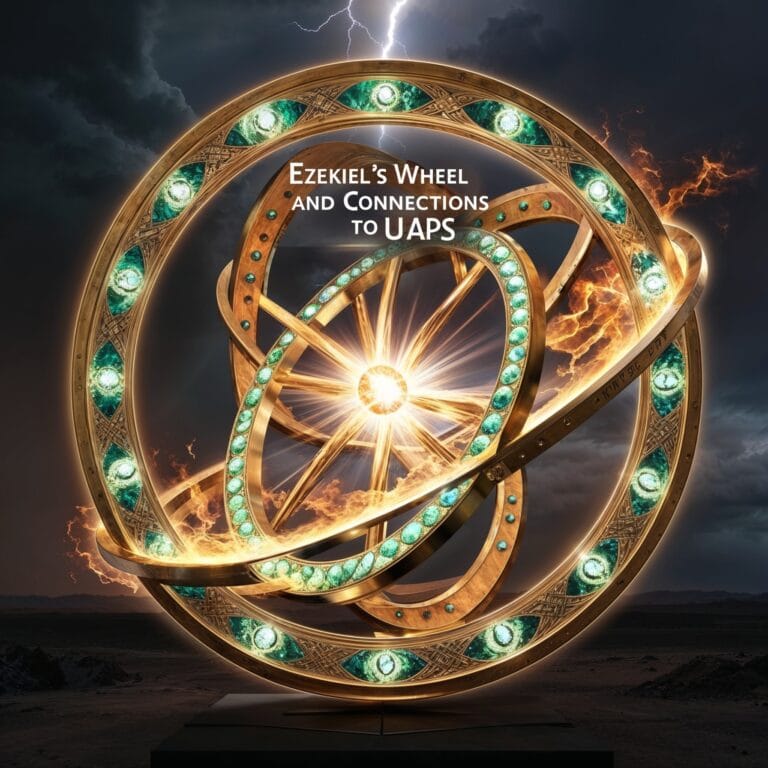
"Illuminated depiction of GOD, signifying holiness and light."
Who is God? This profound question has been asked by philosophers, theologians, and everyday people for centuries. From the intricate details of creation to the personal experiences of individuals, the answer to this question reveals much about life, purpose, and the divine. Through the Bible, we gain a detailed and consistent understanding of God’s character. In this article, we will explore the attributes of God as described in Scripture and how these attributes impact life today.
God is the Creator of All Things
Who is God as the Creator? The Bible begins with this foundational truth: “In the beginning, God created the heavens and the earth” (Genesis 1:1). God’s creative power is evident in the vastness of the universe, the complexity of life, and the beauty of nature.
- Scriptural Basis: The creation narrative in Genesis showcases God’s omnipotence and intentionality. Job 38–39 further emphasizes His sovereign control over creation. Psalm 19:1 declares, “The heavens declare the glory of God; the skies proclaim the work of His hands.”
- Attributes Highlighted: Creativity, power, intentionality, and order.
- Expanded Arguments: The precise order of the cosmos, the diversity of life forms, and the laws of nature point to an intelligent Designer. The beauty of creation not only reveals God’s power but also His attention to detail and artistry.
- Application in Life: Observing the natural world inspires awe and reminds us of God’s authority and purpose. It challenges us to care for the earth as stewards of His creation, recognizing that all things ultimately belong to Him.
God is Love: His Compassion and Grace
Who is God in His love for humanity? The Bible defines God as the source of love. In 1 John 4:8, it states, “God is love.” This love is not just a feeling but an active, sacrificial commitment to the well-being of His creation.
- Scriptural Basis: John 3:16 declares, “For God so loved the world that He gave His one and only Son.” This ultimate act of love demonstrates His grace and mercy. Romans 5:8 adds, “But God demonstrates His own love for us in this: While we were still sinners, Christ died for us.”
- Attributes Highlighted: Mercy, grace, forgiveness, compassion, and selflessness.
- Expanded Arguments: God’s love is covenantal and enduring, as seen in His promises to Israel and their ultimate fulfillment in Christ. His love is also impartial, extending to all people regardless of their status or actions.
- Application in Life: Understanding God’s love helps us to love others, extend forgiveness, and embrace the hope found in Christ’s sacrifice. It compels believers to share this love through acts of kindness, charity, and evangelism.
God is Holy: Perfect and Set Apart
Who is God as holy? Holiness is a defining characteristic of God, signifying His purity and separateness from sin. Isaiah’s vision of God in Isaiah 6:3 exclaims, “Holy, holy, holy is the Lord Almighty.”
- Scriptural Basis: 1 Peter 1:16 calls believers to mirror God’s holiness: “Be holy, because I am holy.” Leviticus 11:45 highlights God’s call for holiness among His people.
- Attributes Highlighted: Purity, righteousness, moral perfection, and transcendence.
- Expanded Arguments: God’s holiness is reflected in His laws, which are designed to set His people apart. His holy nature requires justice and cannot tolerate sin, which is why Christ’s atonement was necessary for reconciliation.
- Application in Life: God’s holiness calls for reverence, worship, and a life committed to moral integrity. Believers are inspired to pursue personal holiness by living in alignment with God’s commands and resisting the temptations of sin.
God is Just: A Righteous Judge
Who is God as a just judge? God’s justice ensures that He governs with fairness and moral integrity. Deuteronomy 32:4 describes Him as a “God of faithfulness and without iniquity, just and upright is He.”
- Scriptural Basis: Psalm 9:7–8 highlights God’s role as a righteous judge who ensures justice for all. Ecclesiastes 12:14 reminds us that God will bring every deed into judgment.
- Attributes Highlighted: Fairness, righteousness, impartiality, and accountability.
- Expanded Arguments: God’s justice is tempered by His mercy, offering forgiveness to those who repent. His ultimate judgment ensures that evil will not go unpunished, providing hope for the oppressed and marginalized.
- Application in Life: Trusting in God’s justice brings peace, especially in a world where human justice often fails. It challenges believers to live justly, defend the rights of the vulnerable, and trust that ultimate justice will be served.
God is Eternal and Unchanging
Who is God beyond time? Unlike creation, which is bound by time and change, God exists eternally and remains constant. Revelation 1:8 declares, “I am the Alpha and the Omega.”
- Scriptural Basis: Hebrews 13:8 states, “Jesus Christ is the same yesterday, today, and forever.” Psalm 90:2 affirms, “From everlasting to everlasting, You are God.”
- Attributes Highlighted: Eternity, immutability, reliability, and faithfulness.
- Expanded Arguments: God’s unchanging nature ensures the reliability of His promises. His eternal existence sets Him apart from created beings and underscores His sovereignty over time and history.
- Application in Life: God’s unchanging nature provides stability and hope in an ever-changing world. It assures believers that His promises remain true, offering a firm foundation for faith.
God is Omniscient, Omnipotent, and Omnipresent
Who is God in His infinite power and knowledge? The Bible reveals that God is all-knowing, all-powerful, and present everywhere. These attributes underscore His sovereignty and intimate involvement with creation.
- Scriptural Basis: Psalm 139:1–4 illustrates God’s omniscience: “You have searched me, Lord, and you know me.” Jeremiah 23:24 affirms His omnipresence: “Do I not fill heaven and earth?” Matthew 19:26 highlights His omnipotence: “With God all things are possible.”
- Attributes Highlighted: Omniscience, omnipotence, omnipresence, and wisdom.
- Expanded Arguments: God’s omniscience assures that He knows our needs before we ask. His omnipotence confirms that no situation is beyond His control, and His omnipresence means we are never alone.
- Application in Life: Recognizing God’s power and presence brings comfort, guidance, and accountability. It inspires confidence to face challenges and trust in His perfect plan.
God is Sovereign: The Supreme Authority
Who is God as the ultimate authority? God’s sovereignty means He rules over all things and nothing happens outside His will. Psalm 103:19 declares, “The Lord has established His throne in the heavens, and His kingdom rules over all.”
- Scriptural Basis: Isaiah 46:10 highlights God’s sovereignty: “My counsel shall stand, and I will accomplish all my purpose.” Romans 8:28 shows how God works all things for the good of those who love Him.
- Attributes Highlighted: Authority, control, providence, and dominion.
- Expanded Arguments: God’s sovereignty extends to every detail of life, from the rise and fall of nations to the care of individuals. His plans are unthwarted, ensuring that His purposes are always fulfilled.
- Application in Life: Trusting in God’s sovereignty brings peace and assurance, even in uncertain times. It encourages believers to submit to His will, knowing He works for their ultimate good.
God is Personal and Relational
Who is God in personal relationships? While God is transcendent, He is also immanent, deeply involved in the lives of His people. Jeremiah 29:11 reveals His care: “For I know the plans I have for you.”
- Scriptural Basis: Romans 8:15 describes the intimacy believers can have with God: “We cry, ‘Abba! Father!’” John 15:15 emphasizes the relational aspect: “I have called you friends.”
- Attributes Highlighted: Intimacy, guidance, care, and relational love.
- Expanded Arguments: God’s personal nature is demonstrated through His communication with humanity via His Word, the Holy Spirit, and answered prayers. His relational character invites individuals to draw near to Him.
- Application in Life: God’s personal nature invites individuals to build a relationship with Him through prayer, worship, and obedience. Believers are encouraged to trust in His plans and seek His guidance daily.
Conclusion: Experiencing God Today
Understanding who God is shapes our worldview and relationship with Him. The Bible reveals God as Creator, Redeemer, Judge, and Sustainer—a holy, loving, just, and personal God who invites us into a relationship with Him. Recognizing His attributes inspires awe, worship, and a life dedicated to His purpose.

Further Reading on Paranoid Prophet
For more insights and detailed discussions on related topics, explore these articles from Paranoid Prophet:
- Bible Study Category
Explore a wide range of articles delving into biblical interpretations, theological insights, and connections between scripture and contemporary themes. - Ezekiel’s Wheel and Connections to UAPs
A fascinating analysis of Ezekiel’s vision, examining how the biblical description of the “wheel within a wheel” could relate to modern theories about unidentified aerial phenomena (UAPs). - Eschatological Prophecies of Jesus: His Return, Reign, and the New Creation
Dive into the prophetic passages about Jesus’ second coming, His eternal reign, and the promise of a renewed creation, offering hope and clarity on eschatological themes.
These articles provide additional perspectives and enrich the discussion on Genesis Creation and Time Perception, connecting biblical insights to broader spiritual and scientific dialogues.
Sources for More Reading
- Crossway – Resources on the Bible and Christian living: https://www.crossway.org
- Bible Gateway – Explore different translations and in-depth commentaries: https://www.biblegateway.com
- Desiring God – Articles and sermons about God’s nature and Christian living: https://www.desiringgod.org
- Got Questions – Biblically grounded answers to common theological questions: https://www.gotquestions.org
- Blue Letter Bible – Study tools for deepening your understanding of Scripture: https://www.blueletterbible.org
- Christianity Today – Articles discussing Christian theology and cultural engagement: https://www.christianitytoday.com
- The Gospel Coalition – Resources for theological insights and Christian growth: https://www.thegospelcoalition.org



God is Love